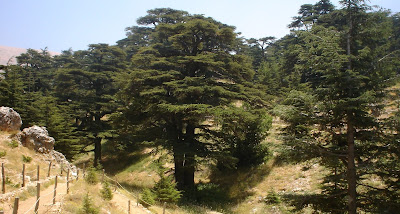Yet God does not want to destroy us. He does no want to swamp our boats with waves. He wants us to call out to him in confidence. Even amidst the chaos he wants us to trust him with peace in our hearts.
“Lord, save us! We are perishing!”
He said to them, “Why are you terrified, O you of little faith?”
Then he got up, rebuked the winds and the sea,
and there was great calm.
This is true of the storms we face on a national level. It is true of storms we face in our individual lives. And who of us has a life which is marked only by "great calm" and not by wind and waves? Who of us has a life so pure that we never face the sulfurous consequences of ill conceived decisions and ill chosen pursuits?
Jesus wants to calm these storms. He wants his angels to lead us "to safety outside the city."
He wants our eyes on the path ahead of us...
O Lord, your mercy is before my eyes.
...not on the path behind...
But Lot’s wife looked back, and she was turned into a pillar of salt.
We are not permitted to even desire the comforts that our lives and nations may have once enjoyed if this comforts rested on illusion. If we were comfortable while sin seethed beneath the surface we cannot look back toward that. If our nation seemed to be doing fine while all of the conditions that made for the trials which we now face were already in place we cannot look back toward that time with longing.
Instead we look forward to face the Lord, putting his mercy before our eyes.
And let us run with perseverance the race marked out for us, fixing our eyes on Jesus, the pioneer and perfecter of faith (cf. Heb. 12:1).
We look to Jesus. With our eyes fixed on him we do not sink back into the waters of chaos (cf. Mat. 14:28-32). We are not gathered with sinners but instead walk in integrity on level ground. We make it to safety outside the city.
But I walk in integrity;
redeem me, and have mercy on me.
My foot stands on level ground;
in the assemblies I will bless the LORD.
Our hearts are moved to praise as and amazement as we wonder, "What sort of man is this, whom even the winds and the sea obey?" Jesus is the one who hushes the storms of our lives and nations to silence and stills the waves of the sea (cf. Psa. 107:29). He is the LORD!




























